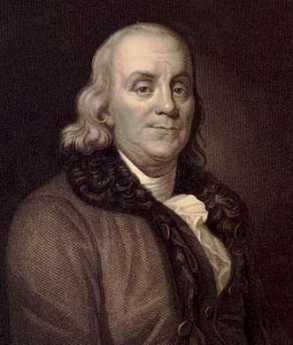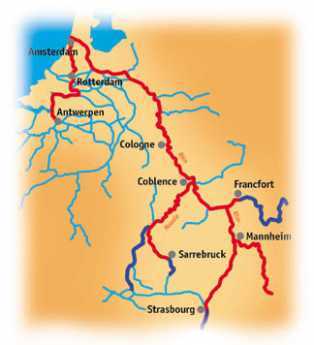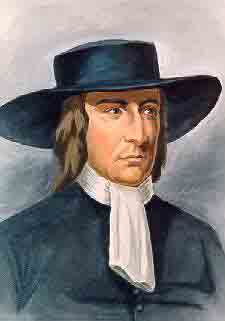Related Topics
Benjamin Franklin
A collection of Benjamin Franklin tidbits that relate Philadelphia's revolutionary prelate to his moving around the city, the colonies, and the world.

To Germantown, a Short Appreciation
Seven miles from the heart of Philadelphia, Germantown was once a separate town, the cultural center of Germans in America. Revolutionary battles were fought here, it was briefly the capital of the United States, and it still has an outstanding collection of schools and colleges.
Germany Before Germantown
A breezy summary of European geopolitics, including many rough inaccuracies, will possibly irritate residents of that region who read it but may help Americans understand the history and composition of the Germantown area of Philadelphia.
The Western World was defined as a province of Rome, and all roads led there. A better unifying concept would be, the Alps are the center of Europe and all roads had to go around those mountains. At the northern end of the Italian boot are the Swiss Alps, forcing even Romans to go through what is now Provence in France to get around them. Rivers run off the tops of mountain ranges, of course, and then trickle away to some sea. An old jingle defines the river system of Switzerland as The Rhine, the Rhone, Danube and Po--arise in the Alps, and away they go!"

|
| Rhine River |
So northward-bound Romans, Julius Caesar and all, went West around the Alps up the valley of the south-flowing Rhone, eventually portaging over to the north-flowing Rhine River flowing to Rotterdam, which in turn is just across the English channel from mouth of the Thames leading to London, or Londinium as they called it. The crossover between the Rhone and the Rhine was at Strasbourg where the European Parliament now meets. For two thousand years, the main highway from Rome to London was via the Rhone-Rhine-Thames river complex.
Essentially, residents to the West of the Rhone-Rhine were Roman Catholic, and residents to the East were Protestant. At least, that was as true in the Sixteenth Century as reciprocal genocide might accomplish. The head of the Rhine River in Switzerland was Calvinist Protestant, and the mouth of the river in Holland was Reform Protestant. Along the main part of the river, Alsace, Lorraine, Palatine, Luxembourg,divided East and West but for centuries pieces of land shifted control back and forth. The reformation movement started by Martin Luther ended up as the Thirty Years War, from which the region took another hundred years to recover, and more hundreds of years to forget and forgive. You might call it a religious Mason-Dixon line, remembering of course that the American Civil War was mostly fought on the Potomac, not the Mason Dixon.

|
| George Fox |
Professional soldiers teach military students that there is no war more remorseless than a religious war. Lots of people, probably thousands, were burned at the stake during the religious wars along the Rhineland. Rape and pillage were common practice. And so, if you lived in a little farming village in this region, and some Englishman named William Penn came around with an offer to emigrate to his peaceful kingdom in America, it sounded wonderful. Religious toleration was an important part of the attractiveness, and nowhere to be found in Europe.
William Penn's mother was Dutch. It is likely he spoke the local languages. For a number of years in his youth he had traveled in the Low Countries and the Rhineland, preaching the ideas of George Fox The Quaker. And then, one day he arrived with a brand new idea. The King of England had given him a huge stretch of uninhabited land in the New World, no doubt influenced by the idea that Quakers were a nuisance and this was a good way to get rid of them. Whatever. Penn was selling land grants, and he could be trusted. Why not give it a try?
Originally published: Thursday, September 28, 1995; most-recently modified: Friday, May 03, 2019
| Posted by: Vasile | Jun 3, 2012 10:35 PM |